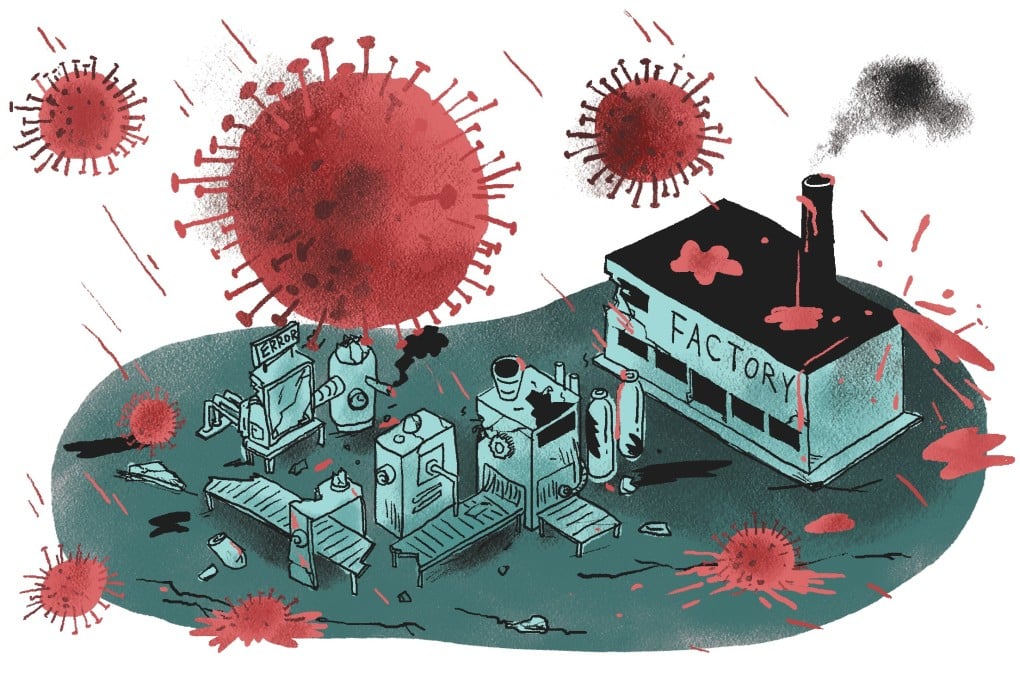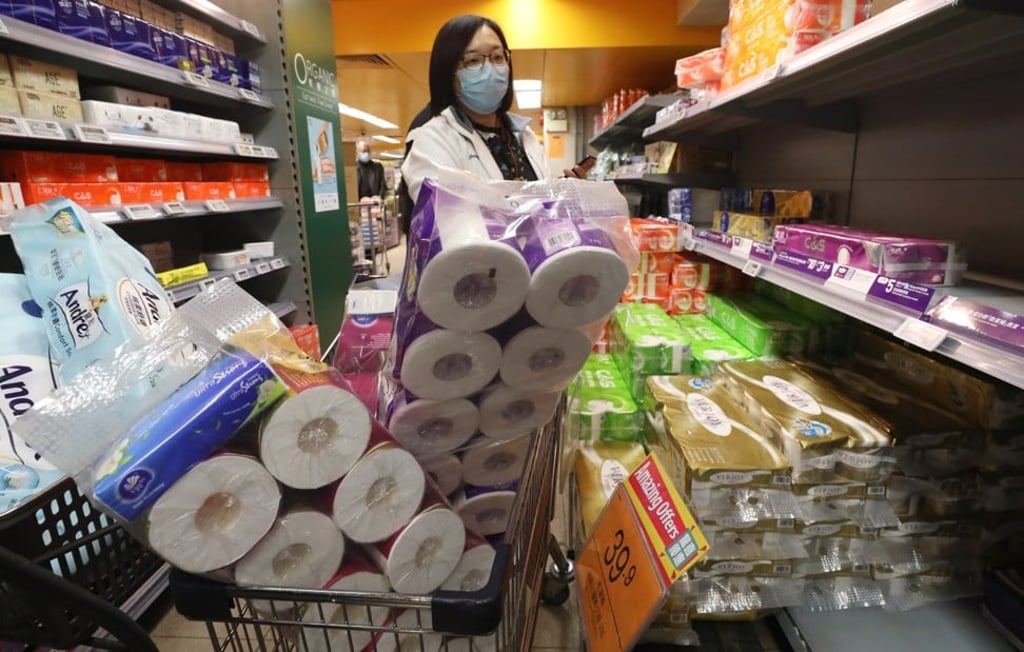Global consumers reel from China’s coronavirus containment as stop-work orders disrupt supplies of iPhones, Hyundai cars and toilet paper
- South Korean carmakers are the first of China’s global customers to feel the impact of the Chinese government’s efforts to contain the spread of the coronavirus
- Three of South Korea’s five carmakers halted their production because they could not get crucial components from their Chinese suppliers, whose factories are sitting idle amid the outbreak in China

A message went up in the WeChat discussion group shared by residents of The Belcher’s apartment complex in Hong Kong’s Pok Fu Lam district on Wednesday morning. “Toilet paper rolls are running out!” said the post.
As word spread among the estimated 7,000 residents living in The Belcher’s six tower blocks, households rushed into nearby supermarkets to replenish their stockpiles. By the day’s end, every grocer, pharmacist and supermarket in the neighbourhood had run out of toilet paper, sanitary towels and alcohol wipes, adding to the tally of essential goods and staples that are already in short supply as Hongkongers hunker down for their second month of a global viral outbreak.
“Factories on the mainland are shutting for extended periods, so there can be no telling how long the current supply can last,” said Harrison Lee, a local accountant whose entire office is under orders to work from home amid the coronavirus outbreak. “We depend on the mainland for almost everything we eat, or use everyday, so we have to be extra vigilant about signs of disruption.”

To contain the transmission of the disease, the Chinese government has extended the nationwide public holiday for the Year of the Rat in the lunar calendar, and ordered companies and factories across 17 cities and provinces to stop operating until February 9, forcing an estimated 50 million people to stay home. As a result, factories are sitting idle, and the effects are beginning to show up in far-flung corners of the global supply chain, from Apple’s iPhones to Hyundai Motor’s cars, fuelling Hong Kong’s panic over toilet paper.
“The greater the disruption in China, the more likely it is to spread overseas,” Capital Economics’ chief emerging markets economist Neil Shearing said in a Reuters interview. “Given that China is now at the heart of many global supply chains, this will have knock-on effects around the world.”